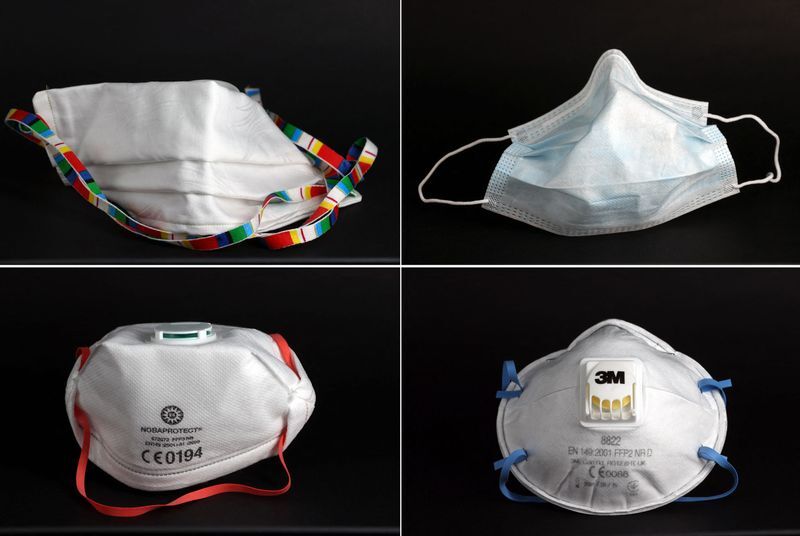Written by Adam Liptak
The Supreme Court on Wednesday refused a request from former President Donald Trump to block the release of White House records concerning the Jan. 6 attack on the Capitol, effectively rejecting Trump’s claim of executive privilege and clearing the way for the House committee investigating the riot to receive the documents hours later.
The court, with only Justice Clarence Thomas noting a dissent, let stand an appeals court ruling that Trump’s desire to maintain the confidentiality of internal White House communications was outweighed by the need for a full accounting of the attack and the disruption of the certification of the 2020 electoral count.
https://images.indianexpress.com/2020/08/1×1.png
In an unsigned order, the majority wrote that Trump’s request for a stay while the case moved forward presented weighty issues, including “whether and in what circumstances a former president may obtain a court order preventing disclosure of privileged records from his tenure in office, in the face of a determination by the incumbent president to waive the privilege.”
But an appeals court’s ruling against Trump did not turn on those questions, the order said.
|Ignoring Donald Trump didn’t work, Joe Biden goes after ‘a defeated former President’
“Because the court of appeals concluded that President Trump’s claims would have failed even if he were the incumbent, his status as a former president necessarily made no difference to the court’s decision,” the order said.
Within hours of the decision, the National Archives turned over hundreds of pages of documents to the committee.
Rep. Bennie Thompson, D-Miss., chair of the committee, and Rep. Liz Cheney, R-Wyo., vice chair, called the decision “a victory for the rule of law and American democracy.”
“Our work goes forward to uncover all the facts about the violence of Jan. 6 and its causes,” they said.
It was the latest example of a case in which the Supreme Court, which includes three justices appointed by Trump, ruled against him and his allies on issues related to the 2020 election.
Because the House committee investigating the attack sought the records from the National Archives, Biden and Trump both had the opportunity to object.
Trump invoked executive privilege, a doctrine meant to protect the confidentiality of presidential communications, over some of the documents.
“These sweeping requests are indicative of the committee’s broad investigation of a political foe, divorced from any of Congress’ legislative functions,” his lawyers told the justices in an emergency application.
Biden took a different view in October in declining to assert executive privilege over some of the materials.
“Congress is examining an assault on our Constitution and democratic institutions provoked and fanned by those sworn to protect them, and the conduct under investigation extends far beyond typical deliberations concerning the proper discharge of the president’s constitutional responsibilities,” wrote White House counsel Dana Remus.
She added that executive privilege should not be employed to protect “information that reflects a clear and apparent effort to subvert the Constitution itself.”
The committee has demanded detailed records about Trump’s every movement and meeting on the day of the assault. The panel’s requests include material about any plans formed in the White House or other federal agencies to derail the electoral vote count by Congress.
House investigators are seeking information about Trump’s lack of action in calling off the mob and more details about his pressure campaign to overturn the results of an election he lost at the polls.
Among the documents that Trump had asserted executive privilege over were proposed talking points for Kayleigh McEnany, his former press secretary; a handwritten note concerning Jan. 6; a draft text of a presidential speech for the “Save America” rally that preceded the mob attack; and a draft executive order on the topic of election integrity, the filing states.
Trump has also sought to block the release of records from the files of Mark Meadows, his former chief of staff; Stephen Miller, his former senior adviser; and Patrick F. Philbin, his former deputy counsel. Trump also sought to stop the release of the White House Daily Diary — a record of the president’s movements, phone calls, trips, briefings, meetings and activities — as well as logs showing phone calls to the president and to Vice President Mike Pence concerning Jan. 6.
Finally, Trump tried to keep secret a draft proclamation honoring the Capitol Police and two officers who died after the riot, Brian D. Sicknick and Howard Liebengood, as well as related emails; a memo about a potential lawsuit against several states that Biden won; an email chain from a state official regarding election-related issues; and talking points on supposed election irregularities in one county in Michigan.
Trump told the justices that he had a constitutional right to shield the materials from Congress even though Biden declined to invoke executive privilege over them.
Lawyers for the House committee responded that the Supreme Court should not thwart its inquiry. “The select committee’s work,” they wrote, “is of the highest importance and urgency: investigating one of the darkest episodes in our nation’s history, a deadly assault on the United States Capitol and Congress, and an unprecedented disruption of the peaceful transfer of power from one president to the next.”
Justice Brett Kavanaugh, who served as staff secretary to President George W. Bush, was the only justice to issue a signed opinion in the case. He said the appeals court, in a passage the majority had said was nonbinding, had been wrong in its analysis.
“A former president must be able to successfully invoke the presidential communications privilege for communications that occurred during his presidency, even if the current president does not support the privilege claim,” Kavanaugh wrote. “Concluding otherwise would eviscerate the executive privilege for presidential communications.”
Trump had sued to block release of the documents, saying that the committee was investigating possible criminal conduct, a line of inquiry that he said was improper, and that the panel had no valid legislative reason to seek the requested information.

